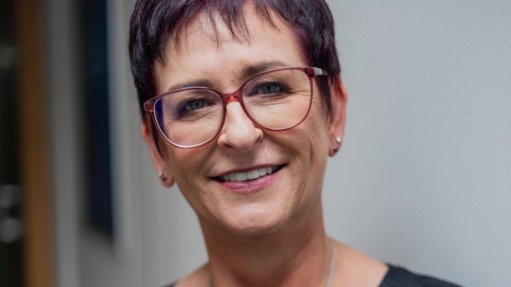No cure for coups just yet
One of my ‘go to’ sources of international news is the website of The Washington Post. The credibility of the newspaper – which hardly gets its ‘facts’ wrong and promptly corrects any errors that may slip through – is an obvious pull factor.
But I’m also drawn by its subeditors’ way with words. For those not sufficiently familiar with our trade (journalism, I insist, is not a profession), subeditors are the men and women who panel-beat the drafts penned by journalists so that they are reader friendly and shorn of inaccuracies and legal pitfalls. They also compose story headlines, and the first prize, always, is a headline that draws in the reader – potential reader is more like it – who has to choose from dozens of stories screaming for attention.
Take this recent headline from the Post: ‘There was an epidemic of coups in 2021. The new year hasn’t cured the political turmoil’. Everyone now knows, or should know, what an epidemic is, what with Covid-19 having clobbered us during the past two years. In the early days of this disruptor of life as we knew it, the term ‘epidemic’ was used to describe it, with the definition being a disease that affects a large number of people within a community, population or region. The region in question was Wuhan, in China. With the passage of time, the disease spread to more and more countries, leading to a different nomenclature – pandemic – being used.
The choice of ‘epidemic’ in the Post headline is indicative of the large number of people who were affected by military seizures of power in 2021. If I were the newspaper’s chief subeditor, I would have struck off ‘epidemic’, replacing it with ‘pandemic’, for it is not only many people who were affected; many countries were. I am aware of five, but there could be more. Outside Africa, there was one in Myanmar, on February 1, whereas on our continent elected heads of State were forced out in Chad, Mali, Guinea and Sudan. The Chad one was different from the rest in that the President died in a battlefield confrontation with insurgents.
Last year’s successful coups were more than in all of the previous five years combined. This, according to statistics compiled by researchers at the US’s University of Central Florida and the University of Kentucky, was a record for the twenty-first century.
I have said it before – the absence of highly punitive repercussions, especially those meted out by continental or regional blocs, appears to encourage soldiers to shoot their way to power. Take Mali, for example. No tough enough action was taken against those behind the forced resignation of President Ibrahim Boubacar Keita in 2020. Hardly a year later, his replacement, Bah N’Da – who occupied the position in a transitional capacity – was arrested by the military and he and his colleagues were ejected from government. Although promises were made that elections would be held early this year so that the country returns to civilian rule, the soldiers in Bamako, the Malian capital, are digging in their heels, prompting the Economic Community of West African States (Ecowas) to cut the country off.
Indeed, Ecowas, which is more effective at dealing with rogue governments than blocs such as our own Southern African Development Community, has its hands full at present. Towards the end of last month, soldiers in Burkina Faso arrested President Roch Kabore amid public anger at his perceived mishandling of a jihadist insurgency. Adding to the turmoil, soldiers in Guinea-Bissau launched a gun attack on the country’s President, stocking fears that the constitutional order would be upended.
So, just like Covid-19, it appears humanity is far from finding a cure for coups.
Article Enquiry
Email Article
Save Article
Feedback
To advertise email advertising@creamermedia.co.za or click here
Comments
Announcements
What's On
Subscribe to improve your user experience...
Option 1 (equivalent of R125 a month):
Receive a weekly copy of Creamer Media's Engineering News & Mining Weekly magazine
(print copy for those in South Africa and e-magazine for those outside of South Africa)
Receive daily email newsletters
Access to full search results
Access archive of magazine back copies
Access to Projects in Progress
Access to ONE Research Report of your choice in PDF format
Option 2 (equivalent of R375 a month):
All benefits from Option 1
PLUS
Access to Creamer Media's Research Channel Africa for ALL Research Reports, in PDF format, on various industrial and mining sectors
including Electricity; Water; Energy Transition; Hydrogen; Roads, Rail and Ports; Coal; Gold; Platinum; Battery Metals; etc.
Already a subscriber?
Forgotten your password?
Receive weekly copy of Creamer Media's Engineering News & Mining Weekly magazine (print copy for those in South Africa and e-magazine for those outside of South Africa)
➕
Recieve daily email newsletters
➕
Access to full search results
➕
Access archive of magazine back copies
➕
Access to Projects in Progress
➕
Access to ONE Research Report of your choice in PDF format
RESEARCH CHANNEL AFRICA
R4500 (equivalent of R375 a month)
SUBSCRIBEAll benefits from Option 1
➕
Access to Creamer Media's Research Channel Africa for ALL Research Reports on various industrial and mining sectors, in PDF format, including on:
Electricity
➕
Water
➕
Energy Transition
➕
Hydrogen
➕
Roads, Rail and Ports
➕
Coal
➕
Gold
➕
Platinum
➕
Battery Metals
➕
etc.
Receive all benefits from Option 1 or Option 2 delivered to numerous people at your company
➕
Multiple User names and Passwords for simultaneous log-ins
➕
Intranet integration access to all in your organisation

















